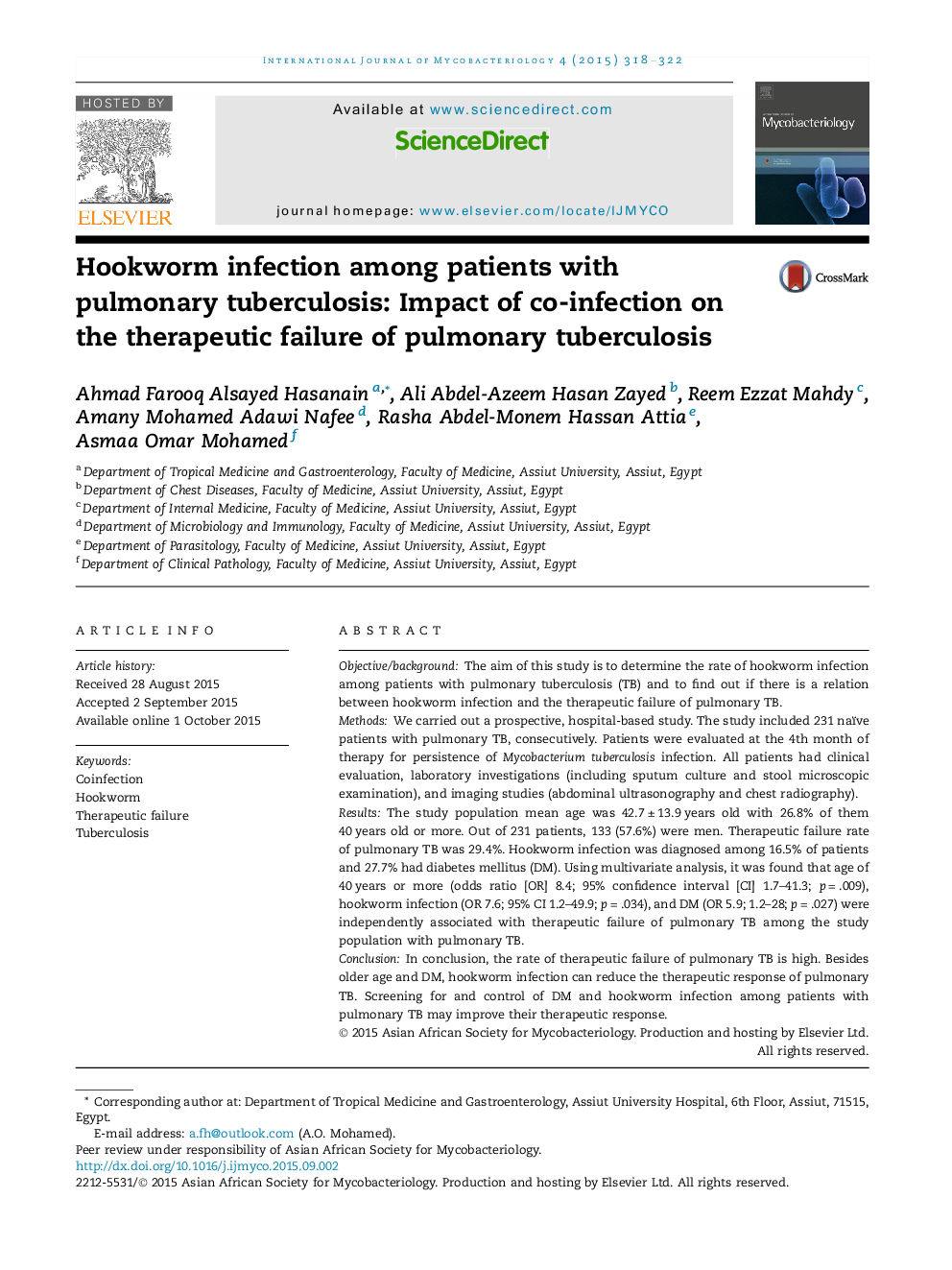| Article ID | Journal | Published Year | Pages | File Type |
|---|---|---|---|---|
| 3404957 | International Journal of Mycobacteriology | 2015 | 5 Pages |
Objective/backgroundThe aim of this study is to determine the rate of hookworm infection among patients with pulmonary tuberculosis (TB) and to find out if there is a relation between hookworm infection and the therapeutic failure of pulmonary TB.MethodsWe carried out a prospective, hospital-based study. The study included 231 naïve patients with pulmonary TB, consecutively. Patients were evaluated at the 4th month of therapy for persistence of Mycobacterium tuberculosis infection. All patients had clinical evaluation, laboratory investigations (including sputum culture and stool microscopic examination), and imaging studies (abdominal ultrasonography and chest radiography).ResultsThe study population mean age was 42.7 ± 13.9 years old with 26.8% of them 40 years old or more. Out of 231 patients, 133 (57.6%) were men. Therapeutic failure rate of pulmonary TB was 29.4%. Hookworm infection was diagnosed among 16.5% of patients and 27.7% had diabetes mellitus (DM). Using multivariate analysis, it was found that age of 40 years or more (odds ratio [OR] 8.4; 95% confidence interval [CI] 1.7–41.3; p = .009), hookworm infection (OR 7.6; 95% CI 1.2–49.9; p = .034), and DM (OR 5.9; 1.2–28; p = .027) were independently associated with therapeutic failure of pulmonary TB among the study population with pulmonary TB.ConclusionIn conclusion, the rate of therapeutic failure of pulmonary TB is high. Besides older age and DM, hookworm infection can reduce the therapeutic response of pulmonary TB. Screening for and control of DM and hookworm infection among patients with pulmonary TB may improve their therapeutic response.
